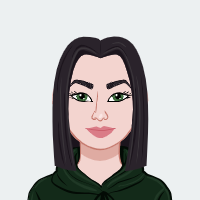Disability Pride Month - How can we all be a better ally to the Disabled Community?

Celebrate with the community
Attending and supporting disability pride events is a great way to show support to the community. If you've a local disability pride event this month, why not pop along and show support? Here's a link to some of the events being held this year - Disability Pride Month 2025 Events
Follow Disability Activists and amplify their voices
Today, most people use some form of social media. Not just for keeping up to date with friends, but also to keep up to date with a whole host of people, businesses and current affairs.
So, by engaging and supporting disability activists on social media platforms, you’re helping to increase visibility, as well as educating yourself continuously by keeping up to date with the important work that they do.
A few popular activists are:
Evie Meg TikTok - @thistrippyhippie
Evie raises awareness and challenges misconceptions by sharing her experiences with both Tourette's Syndrome and PANDAS. Evie has a global following and in 2022 was shortlisted for the National Diversity Awards.
Evie was shortlisted for the National Diversity Awards in 2022.
Lucy Edwards - #BlindNotBroken (@lucyedwardsofficial )
Lucy is a journalist, broadcaster, content creator & disability activist. At 17, Lucy lost her vision. She began to share her stories on YouTube and has built on this further by creating social content which knocks down the misconceptions about blindness.
In 2019 she became the first blind presenter to host BBC Radio 1.
Nikki Lilly - (@nikkililly _)
When Nikki was a child, she was diagnosed with arteriovenous malformation (AVM) and has been sharing her experiences living with a visible difference since she was eight and does so, to spread positivity and hope alongside raising awareness of her condition. She also discusses topics such as mental health, bullying, baking and beauty.
Nikki has received the Child of Courage award at the Pride of Britain, as well as being one of the youngest ever recipient of the BAFTA Special award at the British Academy Children’s Award. She has also won CBBC’s Junior Bake Off.
Share your story
As well as supporting activists and organisations, you might also want to share your story if you feel comfortable doing so. It can be an exceptional act of empowerment and education.
Educate ourselves
Historically, people have been taught to use People First Language, such as “people with disabilities” where-as the community has been encouraging the use of Disability First Language such as “disabled people”. It puts disability at the forefront of phrases.
However, if ever in doubt it’s best to ask a disabled person how they would like to be referred. And if you’re not in a situation where you can do this, it’s always better to use Disability First Language.
This extends further than language though, in making ourselves more aware of disability and the every day challenges of individuals. You might choose to take a deeper look at the organisations and support available. Scope's website for example, offers a lot of information including important campaigns which you can support.
Support disabled-led organisations
You may choose to volunteer or donate to disabled-led organisations as a way to show support. If you want to learn more about DPO's, you can do so here: Disabled Peoples Organisations | Disability Rights UK
Be conscious of, and champion accessibility
There's still a lot of work to be done in society to improve accessibility. By understanding accessibility and being conscious of this at work and events, whether you're directly responsible, or raising questions where attending, it's important to encourage inclusivity. This extends to digital inclusivity too, and employment policies.
Comments
-
thank you for sharing this post and sharing some content creators
0
Categories
- All Categories
- 15.6K Start here and say hello!
- 7.3K Coffee lounge
- 100 Games den
- 1.7K People power
- 141 Announcements and information
- 24.4K Talk about life
- 5.9K Everyday life
- 451 Current affairs
- 2.4K Families and carers
- 882 Education and skills
- 1.9K Work
- 546 Money and bills
- 3.7K Housing and independent living
- 1.1K Transport and travel
- 625 Relationships
- 1.5K Mental health and wellbeing
- 2.5K Talk about your impairment
- 870 Rare, invisible, and undiagnosed conditions
- 930 Neurological impairments and pain
- 2.1K Cerebral Palsy Network
- 1.2K Autism and neurodiversity
- 40.5K Talk about your benefits
- 6.1K Employment and Support Allowance (ESA)
- 19.9K PIP, DLA, ADP and AA
- 8.7K Universal Credit (UC)
- 5.8K Benefits and income





